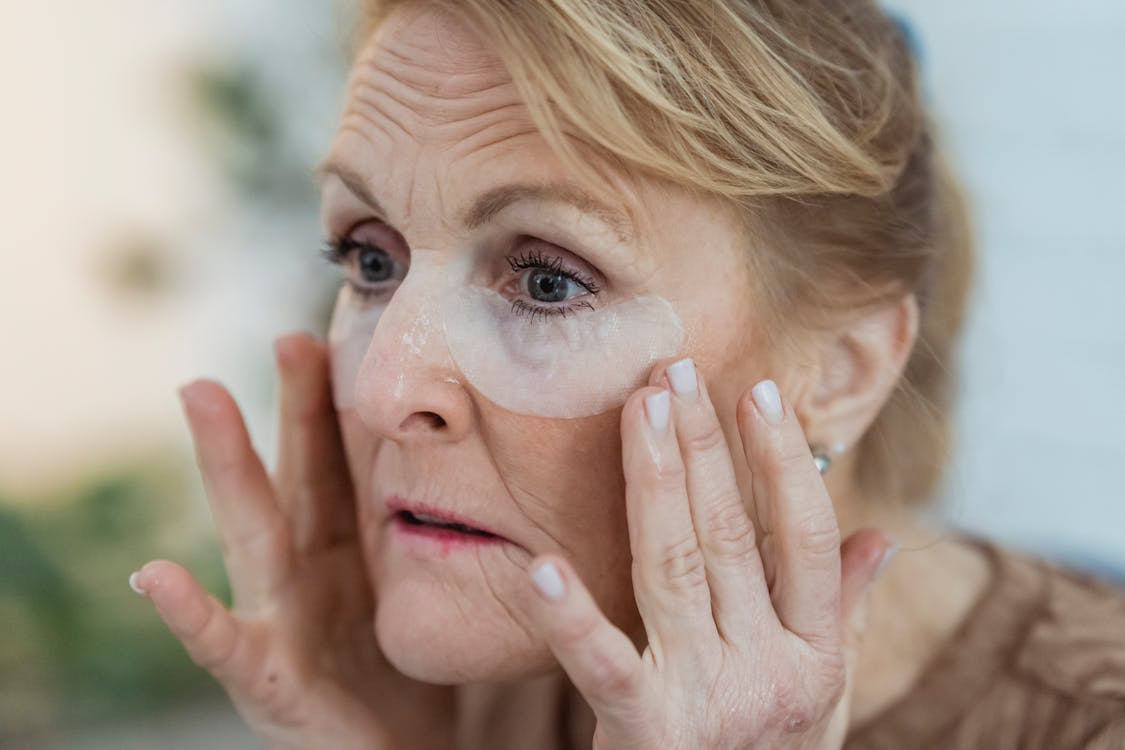
As we journey through life, the passage of time leaves its mark on our skin, manifesting as visible signs of aging. Nevertheless, in recent times, collagen supplements have emerged as a captivating natural remedy, garnering widespread acclaim as a potential “fountain of youth.” This remarkable compound holds the promise of revitalizing our skin and promoting a more youthful appearance, breathing new life into the quest for ageless beauty and overall vitality.
1- What is Collagen

Collagen is the most abundant protein in our bodies, acting as a crucial building block for our skin, bones, muscles, tendons, and ligaments. It provides structural support, elasticity, and strength to our tissues, giving our skin its firmness and suppleness.
Collagen is a protein that serves as a fundamental building block of the body, forming the structural framework for various tissues, including skin, bones, tendons, ligaments, and cartilage. It is the most abundant protein in the human body, comprising approximately one-third of the total protein content. Collagen plays a crucial role in maintaining the strength, elasticity, and integrity of connective tissues, ensuring their proper function and support for organs and joints. As we age, the natural production of collagen in the body tends to decrease, which can lead to signs of aging, such as wrinkles, joint stiffness, and reduced skin elasticity. Consequently, collagen has gained popularity as a popular dietary supplement and ingredient in skincare products, aiming to promote skin health and support joint function.
Collagen is composed of amino acids, particularly glycine, proline, and hydroxyproline, which are essential for its unique structure and properties. The triple helix structure of collagen provides strength and flexibility to the tissues it supports. Collagen is not only vital for maintaining skin elasticity and joint mobility but also plays a role in wound healing, as it forms a framework for new tissue formation during the repair process. Additionally, collagen supplements have become increasingly popular as they are believed to contribute to healthy skin, hair, and nails, as well as joint and bone health. As research on collagen and its potential benefits continues to evolve, it remains a fascinating protein with essential functions that contribute to our overall health and well-being.
2- Collagen Supplements and Youthful Skin

Collagen, often referred to as the “building block of youth,” plays a crucial role in maintaining the health and elasticity of our skin. It is the most abundant protein in our bodies, constituting a significant portion of the skin’s structure. Collagen is responsible for providing strength and firmness to the skin, helping it maintain its smooth and youthful appearance.
During our younger years, our body produces ample amounts of collagen, leading to supple, plump, and radiant skin. However, as we age, this natural collagen production starts to decline, typically beginning in our mid-20s and becoming more noticeable as we enter our 30s and beyond. This decline in collagen levels is one of the primary reasons why we start to witness the visible signs of aging on our skin.
The first signs of collagen depletion are usually fine lines around the eyes and mouth, often known as expression lines. As time goes on, these fine lines can develop into deeper wrinkles, and the skin may start to sag and lose its elasticity. Factors such as exposure to UV rays, pollution, smoking, and an unhealthy diet can accelerate collagen breakdown and further exacerbate the aging process.
To address these concerns and maintain youthful-looking skin, many people turn to collagen supplementation. Collagen supplements are available in various forms, including powders, capsules, and even in certain foods. These supplements often contain collagen peptides, which are broken-down forms of collagen that are easier for the body to absorb.
When consumed regularly, collagen supplements can help replenish the collagen levels in our skin and promote the body’s natural collagen production. As a result, the skin’s structure becomes more resilient and better able to retain moisture, leading to a smoother, plumper, and more radiant complexion.
Beyond its skin benefits, collagen supplementation may also have positive effects on joint health, hair, and nail strength. Some studies suggest that collagen supplements can help reduce joint pain and support bone health, making it an attractive option for individuals with joint-related issues.
However, while collagen supplements show promising results for many individuals, it’s essential to remember that not all supplements are created equal. It’s crucial to choose high-quality products from reputable brands, and it’s always a good idea to consult with a healthcare professional before adding any new supplement to your routine, especially if you have existing health conditions or are taking medications.
Apart from supplementation, there are other ways to support collagen health naturally. A balanced diet that includes protein-rich foods, vitamin C, and other collagen-supporting nutrients can aid the body’s natural collagen synthesis. Additionally, practicing good skincare habits, such as using sunscreen, avoiding smoking, and adopting a consistent skincare routine, can help protect existing collagen and prevent further damage from environmental stressors.
3- Types of Collagen Supplements

Collagen supplements are available in various forms, including powders, capsules, and liquid formulations. The most common types of collagen used in supplements are Type I, Type II, and Type III, each with specific benefits:
- Type I Collagen: Type I collagen is the most abundant type found in our skin, bones, tendons, and ligaments. It helps improve skin elasticity, reduce wrinkles, and support bone and joint health.
- Type II Collagen: Type II collagen is primarily found in cartilage and is beneficial for maintaining healthy joints, supporting their flexibility, and potentially alleviating joint discomfort.
- Type III Collagen: Type III collagen works in conjunction with Type I collagen to provide structural support to our skin, blood vessels, and organs. It contributes to skin firmness and elasticity.
4- Benefits of Collagen Supplementation
- Improved Skin Health: Collagen supplements can help enhance skin hydration, elasticity, and smoothness, reducing the appearance of fine lines and wrinkles.
- Joint Support: Collagen supports joint health by promoting cartilage strength, reducing joint stiffness, and potentially alleviating discomfort associated with conditions like osteoarthritis.
- Stronger Hair and Nails: Collagen provides essential amino acids that contribute to healthy hair and nails, promoting their strength, growth, and overall appearance.
- Gut Health: Collagen contains specific amino acids that can help support a healthy gut lining, promoting digestive health and potentially reducing gut-related issues.

5- Incorporating Collagen into Your Routine
When choosing collagen supplements, opt for high-quality products derived from reputable sources. Collagen peptides, which are smaller and more easily absorbed by the body, are popular due to their bioavailability.
Collagen supplements are generally safe for most people. However, it is advisable to consult with a healthcare professional before starting any new dietary supplement, especially if you have specific health conditions or are taking medications.
Note:
Collagen has emerged as a promising ally in our quest for youthful skin, healthy joints, and overall well-being. By replenishing our body’s natural collagen stores, we can promote skin elasticity, reduce wrinkles, support joint health, and enhance the vitality of our hair and nails. Incorporating collagen supplements into our daily routines can offer us a natural and effective way to tap into the “fountain of youth” and embrace a more radiant, vibrant, youthful version of ourselves.




